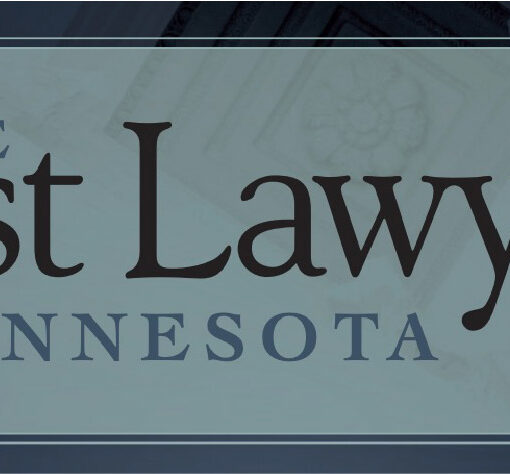
A recent decision by the Iowa Supreme Court marks a victory for common sense enforcement of the reasonable expectations of subcontractors and material suppliers on public projects—specifically, that they will be paid for their work. Star Equipment, Ltd. v. State of Iowa, Iowa Department of Transportation, No. 12-1378 (filed January 31, 2014).
When the State of Iowa waived bonding requirements under its Targeted Small Business (TSB) program, it did so with the assurance (in the bond statute) that subcontractors remain “entitled to any remedy” under the bond statute, and that those remedies will be available “in an action against the public corporation.”
Thus, when IDOT hired an unbonded TSB and the TSB defaulted, the unpaid subcontractors understandably looked to IDOT for payment.
Answering a question of first impression in Iowa, the Iowa Supreme Court interpreted the statutes according to the plain language, requiring IDOT to “step into the shoes of the TSB general contractor to pay unpaid subcontractors.”
The statutory dust settles with IDOT sitting in the surety’s seat.
The Iowa Legislature enacted a policy to encourage targeted small businesses, or TSBs, by waiving bonding requirements in order to allow those companies to compete for government contracts despite lacking the experience, net worth, or capital typically required to secure bonding.
After IDOT hired a TSB general contractor to improve two rest areas, the TSB general contractor failed to pay three of its subcontractors. IDOT maintained that the subcontractors, not the state, should bear the risk of default caused by waiving the bonding requirements.
IDOT’s position was wrong for two reasons. First, it would defeat the purpose of the TSB program by resulting in fewer subcontractors willing to work for TSBs, which would discourage the growth of TSBs. Second, it would defeat the purpose of the bond statute, which is to guarantee payment to subcontractors and material suppliers on public projects, where they cannot secure payment with a mechanic’s lien against public property.
Based on these policy considerations and the plain language of the bond statute, the Iowa Supreme Court correctly decided that the statute “permits the subcontractors to recover from IDOT amounts they could have recovered from the surety if IDOT had not waived the bond.”
Public owners can have unique and unexpected responsibilities, including (in this case) sitting in the surety’s seat.
IDOT’s constitutional challenge backfired with IDOT paying the general contractor’s tab.
Even though the statutes in this case favored the subcontractors, IDOT dug itself into a slightly deeper hole by challenging the statutes under the Iowa Constitution.
IDOT argued that it could not act as surety because Article VII of the Iowa Constitution prohibits the state from assuming or becoming responsible for the debts of any private party (i.e., from being a surety). The Iowa Supreme Court had to decide whether the bond statute “makes IDOT a surety for the TSB or rather imposes primary liability on IDOT to unpaid subcontractors.”
After examining the historical context and interpretations of Article VII and similar constitutional restrictions in other states, the court concluded that the bond statute “puts IDOT in the position of a coprincipal, not a surety, with its TSB.”
In other words, IDOT steps into the shoes of a TSB general contractor when the bonding requirement is waived. This opens the door to recovering attorney fees from IDOT, just like an unpaid subcontractor can do against a general contractor and its surety.
What can we take away from this unique case?
In some respects, the Iowa Supreme Court’s decision is limited to a particular set of circumstances, in a single state. Indeed, every state has its own bonding rules, and every state regulates TSBs, DBEs, and other designated groups under different sets of rules.
However, there are a few lessons all contractors can take away from the Iowa Supreme Court’s decision in Star Equipment:
- Governmental owners can have unique and unexpected responsibilities in public contracting.
- Contractors must hold onto their payment rights, even in the face of uncertainty and denial. Star Equipment is telling not only for what the court says, but for what it doesn’t say—the subcontractors apparently followed the bond statute, thus allowing them to tackle the big questions head-on without being defeated by the “small” questions.
- Iowa subcontractors and material suppliers can continue to bid public work (including for TSB general contractors) without adding premiums in their bids to cover the uncertainty and risk of prime contractor default.
I believe the Iowa Supreme Court made the right call. Payment should be secure on public projects—this rule is fundamental to public contracting because public projects are bid and priced according to risk.
What do you think?
Build it right. Keep it real.
© 2014 Welle Law P.C. No unauthorized use or reproduction.
This blog is for informational purposes only and should not be interpreted as legal advice. You should contact your attorney regarding any particular issue or problem. Nothing on this website creates an attorney-client relationship between Welle Law P.C. (or any of its attorneys) and the reader.




